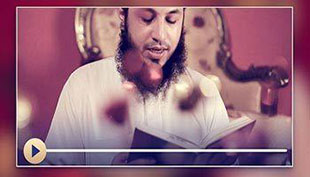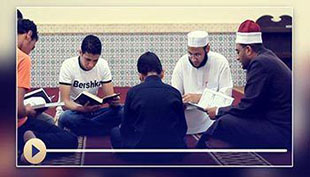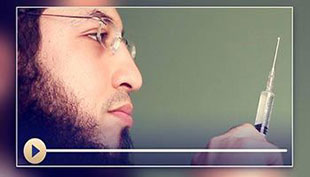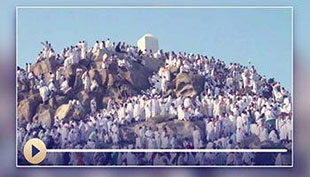Persistence with something and confinement of oneself unto it.
Itikaf rules in Ramadan
Definition of Al-I’tikaf
Staying in seclusion in the masjid (mosque) for the purpose of worshiping Allah Almighty alone.
Permissibility of Al I’tikaf
Al I’tikaf is one of the most virtuous deeds and an excellent form of obedience. ‘Aisha (may Allah be pleased with her) said: “ The Prophet ﷺ used to seclude himself (in the mosque) for the last ten days of Ramadan until his death.” [ Al-Bukhari .]
Al-I’tikaf is enjoined on us as it was joined on those before us. Allah Almighty says: “... and We commanded Ibraheem and Isma’eel that they should purify My House (the Ka’abah at Makkah) for those who are circumambulating it, or secluding (I’tikaf) or bowing or prostrating themselves (there in prayer.)” (Al-Baqarah: 125).
Rulings on Al I’tikaf
Al I’tikaf is a recommended and not a compulsory act, that can be performed anytime. However, the best form of Al I’tikaf is that performed during the last ten days of Ramadan. This is because the Prophet ﷺ persistently performed it in the last ten days of Ramadan. [ Zadul Ma’ad.]
Conditions for Performing Al I’tikaf
1- Making intention
He who performs Al I’tikaf has to make the intention that he is staying inside the mosque to worship Allah in order to become closer to Him. This is in accordance with the statement of the Prophet ﷺ: “Indeed, every action shall be judged according to intention.” [ Agreed upon.]
2- That the masjid in which he is performing i’tikaf is a masjid where jama’a (congregation) salah is performed.
It is not permissible to perform it except in a masjid; “And do not have relations with them as long as you are in i’tikaf in masjids.” (Baqarah: 187)
This is because i’tikaf in a masjid in which there is no jama’a salah necessitates one to either abandon that salah, when it is obligatory for him to perform it, or to be forced to leave his i’tikaf repeatedly each time jama’a salah is due, which goes against the purpose of i’tikaf. It is valid for women, however, to observe i’tikaf in any masjid whether a masjid in which jama’a salah is held or not, that is provided that her i’tikaf does not lead to any fitna (sedition). If fitna would result from her performing i’tikaf she must then be forbidden from doing so. It would be better if the masjid in which he performs i’tikaf is one in which Jumu’ah (Friday) salah is held. That, however, is not a condition for observing i’tikaf .
3- Being free from the State of Major Ritual Impurity
It is thus not permissible for a man who has not yet purified himself from Janabah (ritual impurity), or a woman who is undergoing either post-natal or menstrual bleeding, to perform Al I’tikaf. This is because people from these two categories are not allowed to stay in the masjid at any time due to them being impure.
Fasting is not a condition for Al I'tikaf
Fasting is not regarded as a precondition for Al I'tikaf, because Abdullah Ibn Umar reported that his father, Umar, said to the Prophet: I pledged to Allah during the Jahiliyyah (days of ignorance before Islam) that I shall seclude myself for a night in the Sacred Mosque Al Masjidul Haram (in Makkah). Then the Prophet said: “Keep your promise.” [ Al-Bukhari .] If fasting is a precondition for Al I'tikaf, the seclusion in the night by Umar would not have been valid. Besides, it was also established that the Prophet ﷺ performed Al I'tikaf in the first ten days of Shawwal, among which is the Eid day ,[ Muslim.] when fasting is prohibited. Furthermore, both (fasting and Al I'tikaf) are two separate independent forms of worship. Thus, one is not a precondition for the other.The Period for Al I’tikaf
It is permissible to perform Al I’tikaf any day and within or for any period of time, but the most preferred is that Al I’tikaf should not be performed for less than a complete day or night. This is because it has not been recorded from the Prophet nor from any of his companions that they performed Al I’tikaf for a lesser period than that.
Al I’tikaf in the Last Ten Days of Ramadan
This is the best period to perform Al I’tikaf. This is in accordance with the hadith reported by ‘Aishah, who said: “The Prophet ﷺ used to seclude himself for worship in the last ten days of Ramadan until Allah Almighty took his soul.” [ Source: Bukhari.]
Anyone who intended to perform Al I’tikaf would observe Salatus-Subhi on the 21st of the month in the mosque where he intended to perform Al I’tikaf and would subsequently enter into his seclusion. ‘Aisha (may Allah be pleased with her) reported: “The Prophet used to perform Al I’tikaf every year in the month of Ramadan; when he prayed Salatus-Subhi, he would enter the place of his Al I’tikaf.” [ Source: Bukhari.]
Al I’tikaf ends with the sunset of the last day of Ramadan. However, it is recommended to delay leaving the mosque until the early morning of ‘Eid day, because this is what was recorded as being practiced by many of our pious predecessors.

Wisdom behind Al I’tikaf.
The objective of Al I’tikaf is to free the mind from all worldly matters, and to concentrate on and be occupied with the worship of Allah Almighty alone. Thus it is imperative that someone who performs Al I’tikaf should free his mind from all the worldly matters due to this reason.
Permissible Acts during Al I’tikaf
1- Leaving the mosque for necessities, like eating and drinking, if no one brings food to the person. It is also permissible to leave in order to go to the lavatory. It is authentically reported from ‘Aishah that she said: “The Prophet used to draw his head closer to me, while he was performing Al I’tikaf, so I could help him dress it[ I dressed his hair.], though he would never enter the house except for human necessities.” [ Muslim.]
2- Combing and dressing one’s hair, as evidenced in the above mentioned hadith.
3- Engaging in beneficial discussions with people and to ask about their affairs, but it is not good to do much of that, since it negates the objectives of Al I’tikaf.
4- Welcoming and seeing off any member of his family and relatives who visited him. On the authority of Safiyyah bintu Huyay, wife of the Prophet , who said: “ I once visited the Prophet in the night, while he was performing Al I’tikaf, to discuss some issues with him. Then, when I rose to leave, he stood up and accompanied[ Accompanied me back home.]me (saw me off).” [ Agreed upon.]
Things that Invalidate Al I’tikaf
1- Deliberately leaving the mosque without a justifiable reason, regardless of whether the time is long or short.
This is in accordance with the hadith by ‘Aisha (may Allah be pleased with her): “... and the Prophet would not enter the room except for human necessities.” [ Muslim.] Also, leaving the mosque makes him not persist in staying in the mosque, which is a pillar of Al I’tikaf.
2- Sexual intercourse, even when done in the night.
Allah Almighty says: “ ... And do not have sexual relationship with them (your wives) while you are in Al I’tikaf...” (Al-Baqarah : 187).
Included in this category is anything that leads to lustful ejaculation, such as masturbation or fondling with one’s wife without the physical act of sex.
3- Determination to discontinue Al I’tikaf.
If a Muslim made the intention to perform Al I’tikaf for a particular period and later discontinued it, it is permissible for him to pay it back. ‘Aisha (may Allah be pleased with her) reported that: “If the Prophet intended to perform Al I’tikaf, he entered his place of seclusion (a tent in the mosque)[ Mu’takifihi: a place where he secluded himself.] after observing Salatus-Subhi. One day, he ordered that his tent[ Structure made of hair from animal skin or wool.] should be erected, because he intended Al I’tikaf for the last ten days of Ramadan, and that was done. Thereafter, Zainab (may Allah be pleased with her), (a wife of the Prophet ﷺ, ordered that her tent be erected and some other wives of the Prophet ordered that their tents also be erected. Thereafter and on the completion of Salatus-Subhi, the Prophet saw several tents within the mosque. Then he inquired: “Do you all intend righteousness?”[ He fears that in so doing, they might not have made their intentions sincerely for Allah.] Thereafter he ordered that his tent be pulled down[ Quwwida: The tent was pulled down.] and he postponed Al I’tikaf in the month of Ramadan (for that year) until he paid it back in the first ten days of Shawwal.” [ Agreed upon.] In another narration, It is reported that he paid it back in the last ten days of Shawwal.
4- Sanctum patients do not come back, or attend the funeral, and ceased to worship God in the sanctum







 Laylatul Qadr (the n...
Laylatul Qadr (the n...





